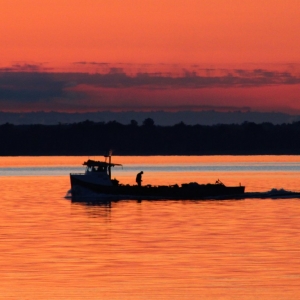The Stream, March 12, 2021: New Technology Finds Hundreds of Wastewater Spills In UK Rivers
YOUR GLOBAL RUNDOWN
- Artificial intelligence detects unreported releases of raw sewage into UK rivers over the last 11 years.
- Controversy and doubt remain in Japan around efforts to clean up nuclear waste from a tsunami a decade ago.
- Utah lawmakers approve a committee to oversee the state’s water rules.
- A massive water transfer project between Lesotho and South Africa has been delayed until 2027.
Bipartisan legislation in Arizona to protect groundwater is met with pushback from the agriculture industry and Republican lawmakers.
“Arizona is way behind many other western states in its ability to protect the environment. Arizona is at a crossroads, and it’s time to take a stand on these issues and really protect the environment for future generations.” – Kathy Jacobs, director of the University of Arizona’s Center for Climate Adaptation Science and Solutions. The Arizona Republic reports that the agriculture industry and key Republican lawmakers are opposing legislation to establish groundwater rules in unregulated areas of rural Arizona. During a hearing for a proposal to protect flowing streams and rivers, supporters of the amendment stressed the need to protect groundwater before it ran dry. The amendment was voted down by Republican legislators in the Senate committee last week.
IN RECENT WATER NEWS
In Case You Missed It:
More Work Needed to Meet Global Water Goal, UN Report Says – The Sustainable Development Goal for water is not just about drinking water and sanitation. It encompasses the entire water cycle, from nature to tap and back.
Too Few Farmers are Curbing Pollution in Lake Erie. Should They be Forced? – Almost everyone acknowledges fixing the problem will require many more farmers to implement practices that reduce runoff, but will enough farmers change their ways without a government mandate to do so?
AI Technology Detects Previously Unreported Releases of Raw Sewage In UK Rivers
A new study, published in the journal Clean Water, used artificial intelligence to identify 926 previously unreported releases of raw sewage into UK rivers between 2009 and 2020. The researchers used a pattern recognition algorithm originally developed for medical genetics to detect when the flow rate from two water treatment plants deviated from normal, indicating that it was spilling untreated wastewater. The authors of the report say the technology could help the water industry assess their assets and regulators improve compliance while facilitating public oversight.
TODAY’S TOP WATER STORIES, TOLD IN NUMBERS
10 YEARS
Ten years after three reactors at Japan’s Fukushima Daiichi nuclear plant were destroyed by a tsunami, controversy and doubt over the country’s cleanup efforts remain, Al Jazeera reports. Authorities continue to debate how to dispose of nearly 1.25 million tons of radioactive water used to cool the melted reactors, all of which is currently sitting in 1,000 metal tanks on the grounds of the plant. Plans to dump the water into the Pacific Ocean were delayed when it was met with national and international alarm. Plans to expand nuclear energy throughout Japan have also received intense criticism.
400,000 ACRE-FEET
Republican lawmakers in Utah approved a six-member entity to oversee the state’s negotiations on a Colorado River drought plan and other rules that expire in 2026, the Associated Press reports. Opponents of the legislation worry it could allow the authority to keep some documents secret and permit closed meetings. The bill comes as Utah is pursuing an underground pipeline that would extract 400,000 acre-feet of water from the Colorado River, on top of the one million acre-feet the state typically uses.
ON THE RADAR
A project to transfer water from Lesotho to South Africa’s commercial hubs and to industries like Sasol and Eskom will begin water delivery in 2027, Reuters reports. South Africa’s Department of Water and Sanitation told Reuters the second phase of the project was meant to be completed by 2020 but has faced funding pressures, protests and Covid-19 delays. The first phase of the project began in 1996.
Jane is a Communications Associate for Circle of Blue. She writes The Stream and has covered domestic and international water issues for Circle of Blue. She is a recent graduate of Grand Valley State University, where she studied Multimedia Journalism and Women, Gender and Sexuality Studies. During her time at Grand Valley, she was the host of the Community Service Learning Center podcast Be the Change. Currently based in Grand Rapids, Michigan, Jane enjoys listening to music, reading and spending time outdoors.







Leave a Reply
Want to join the discussion?Feel free to contribute!